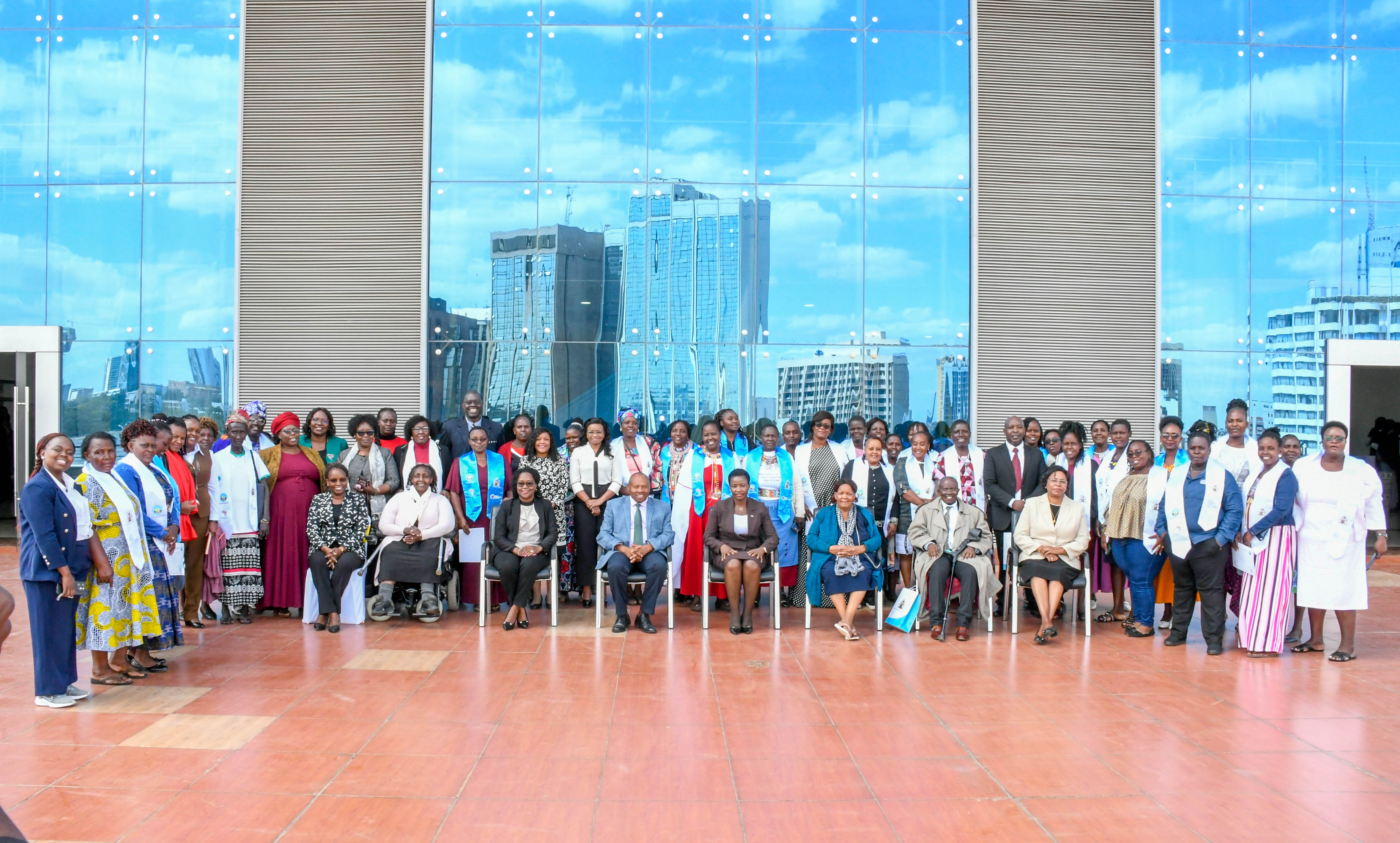Twelve women-led community collectives from nine counties graduated from a transformative business incubation program during a colourful ceremony at the University of Nairobi Towers on July 30, 2025. The event marked the successful conclusion of a three-year project aimed at strengthening women’s entrepreneurship and driving rural industrialization in Kenya.
The graduating groups—drawn from Kisumu, Busia, Kwale, Kilifi, Kitui, Turkana, Kajiado, Meru, and Tharaka-Nithi, were trained in value addition, product development, business management, and market access. Initially dealing in raw produce like green bananas and cassava, the collectives now produce packaged products such as crisps, flour, yoghurt, cakes, fish, and cashew nut butter.
Implemented by the University’s African Women Studies Centre under the Women’s Economic Empowerment (WEE) Hub, the program was supported by partners including KIRDI, Kenya Industrial Estates, CRAWN Trust, and Sweet and Dried. The Environmental Biosystems Engineering Department provided technical training on processing and packaging.
Representing the Vice Chancellor Prof Margaret Hutchinson, Deputy Vice Chancellor for Finance, Planning & Development, Prof Jackson Maalu commended the WEE Hub and its partners for aligning the project with national development goals, including Vision 2030 and the Bottom-Up Economic Transformation Agenda. "Today’s graduation is not just a celebration of what these women have learned; it’s a bold step toward industrial transformation at the grassroots level," added Prof Maalu.
In her remarks, Chief Guest Hon. Susan Mang’eni, Principal Secretary for Micro, Small and Medium Enterprises, praised the initiative for empowering women to become key players in Kenya’s manufacturing and agri-processing sectors. "These graduating women entrepreneurs are not just creating businesses, they are adding value to our rural economies and feeding Kenya with dignity," said Hon. Mang’eni. She pledged continued government support for the program’s next phase.
The ceremony concluded with certificate awards and a vibrant product exhibition. Many of the groups have now formalized their businesses and are tapping into institutional and export markets.
“We are no longer just producers, we are brand owners and change-makers,” said Florence Atieno, Chair of the Busia Cross Border Women Traders SACCO, one of the graduating collectives.
The WEE Hub plans to expand the program to reach more women nationwide, with a continued focus on sustainable, women-led enterprise development.

- Log in to post comments
